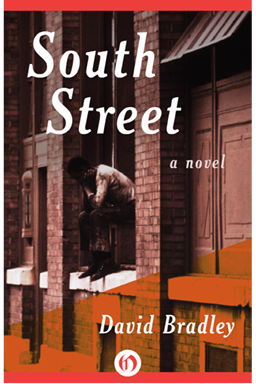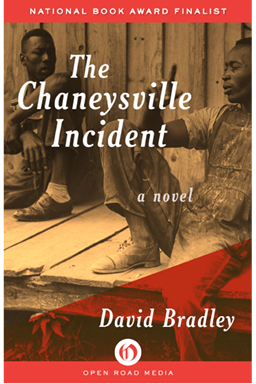Chaneysville Incident (68 page)
Read Chaneysville Incident Online
Authors: David Bradley

The candle was gone now, the only sign of its having been there a small pool of wax and a tiny piece of wick on which the last of the flame writhed like a blue snake. I watched it twisting, wondering whether I should blow at it. But then it died of its own accord, leaving hardly an image on my eyes.
I got up then and took my cup to the stove, and pulled the kettle to the front. I stood there, not thinking, waiting for it to boil.
“Who buried them?” she said. “Who buried them there like that? Pettis?”
“I don’t think so,” I said. “I don’t know why he would.”
“Who, then? Crawley and Graham?”
“That’s what Moses Washington thought,” I said. The kettle hummed, on the verge of boiling, and I reached for the whiskey and the sugar.
“Make me one,” she said.
I didn’t say anything; I just turned to get her cup. The water was boiling then, and I measured and mixed and went back to the table. I gave the cup to her and stood there, sipping, listening to the wind.
“What do you think?” she said.
“They were buried next to a family graveyard. They died there, but they didn’t have to be buried there. They were buried with the same spacing as the family stones….”
“You’re saying the miller—what’s his name? Iiames?—you think he took the time to bury them like that, to figure out who loved who?”
“Yes,” I said. “That’s what I believe.”
“But he was white,” she said.
“I know,” I said.
“Why would a white man…why would you think a white man…?”
I heard the soft squeaking of the chair as her body stiffened, as she turned to try and see my face.
We left there in the morning. We rose early and washed and made breakfast; coffee and venison steaks. We packed our things. Or she did. I didn’t bother with most things. Then I set the place to rights, bringing in wood and stacking it to replace what we had burned, washing the dishes we had used.
When I was finished I told her to go. She did not want to, but I said that I had things to do there, that I wanted to be alone to do them.
When she was gone I took the folio down and put the books and pamphlets and diaries and maps back where they belonged, ready for the next man who would need them. I sealed the folio with candle wax, as my father had done for me. Then I gathered up the tools of my trade, the pens and inks and pencils, the pads and the cards, and carried them out into the clearing. I kicked a clear space in the snow and set them down, and over them I built a small edifice of kindling, and then a frame of wood. I went back inside the cabin and got the kerosene and brought it back and poured it freely over the pyre, making sure to soak the cards thoroughly. I was a bit careless, and got some of it on my boots, but that would make no difference.
When the can was empty I set it down and went and got the folio and tucked it beneath my arm. I took the matches from their keeping place, took one out and closed the lid of the can and put it back in its place, so that it would be there when they wanted it. And then I left the cabin for the last time and went and stood before the pyre and stood looking at the cards and the papers, and thinking about all of it, one last time.
As I struck the match it came to me how strange it would all look to someone else, someone from far away. And as I dropped the match to the wood and watched the flames go twisting, I wondered if that someone would understand. Not just someone; Judith. I wondered if she would understand when she saw the smoke go rising from the far side of the Hill.
The Chaneysville Incident
HAS
been some ten years in preparation. No project that continues for that length of time can properly be said to be the product of one person’s imagination, or determination, or skill; certainly not of mine. I would therefore like to acknowledge the assistance that was given to me, at various times and in various ways, but I am not quite sure how many people. Their names, in no particular order, are: Lester V. Iames, Phyllis Johnson, Edward Frear, Nadia Kravchenko, Mara Pace Bannister, Lois Foell, Shelly Rice, Clydette Powell, Jane Vargo, Linda Venis, C. William Miller, Sheldon Brivic, Toby Olshin, Susan Edmiston, Pamela Walker, Thaddeus Kostrubala, Thomas Miller, Susan Ruehl, Justine Stillings, Deborah Kaplan, Muffy Siegel, Ellie Miller, Lou Ann Winegardner, Paul Schiffman, Denise Ozanne Hall, Doris Johnson, Judith Davies, Winona Garbrick, Edward Burlingame, Beatrice Rosenfeld, Linda Rubin, William Clark, David Watson, Eileen O’Neill, Dustie Gilman, Joseph Colp, Robert Tharp, Juanita Dennis, Richard Schmertzing, Mattie Jones, Oliver Franklin, John Wideman, Cheryl Gregory, Andrew Radolf, Spaid Gilman, Ann Lewis Kostrubala, George Jones, Wendy Clark, Laura Daly, Thomas Voss, Betsy Voss, Tina Nides, Jeanette Kraska.
My special thanks must go to Jonathan Dolger, who saw; Harvey Ginsberg, who focused; and Jake Ross, who made peace; to Tina Burr, who for some reason cared; to Carol Tracy, who was patient; to Wendy Weil, who, thank the Deity, did not
always
listen; to the Bedford County Heritage Commission, whose compilation of historical facts and reissuance of earlier works made critical research possible; to Harriette M. Bradley, who freely shared her knowledge; and to Temple University, whose Faculty Summer Research Fellowship made funds available at a critical time. Thanks to all of them, and to those my exhausted memory has omitted.
DB
David Bradley is an associate professor of creative writing at the University of Oregon and the author of
South Street
and
The Chaneysville Incident
, the latter of which won the PEN/Faulkner Award in 1982 and was a finalist for the National Book Award. The novel also earned Bradley an Academy Award for literature. Bradley has published essays, book reviews, and interviews in periodicals and newspapers including
Esquire
,
Redbook
, the
New York Times
, the
Los Angeles Times
, and the
New Yorker
.
All rights reserved, including without limitation the right to reproduce this ebook or any portion thereof in any form or by any means, whether electronic or mechanical, now known or hereinafter invented, without the express written permission of the publisher.
This is a work of fiction. Names, characters, places, events, and incidents either are the product of the author’s imagination or are used fictitiously. Any resemblance to actual persons, living or dead, businesses, companies, events, or locales is entirely coincidental.
Copyright © 1981 by David H. Bradley, Jr.
Cover design by Mauricio Diaz
978-1-4804-3852-1
This edition published in 2013 by Open Road Integrated Media, Inc.
345 Hudson Street
New York, NY 10014


Open Road Integrated Media
is a digital publisher and multimedia content company. Open Road creates connections between authors and their audiences by marketing its ebooks through a new proprietary online platform, which uses premium video content and social media.
Videos, Archival Documents,
and
New Releases
Sign up for the Open Road Media newsletter and get news delivered straight to your inbox.
Sign up now at
FIND OUT MORE AT
FOLLOW US:



